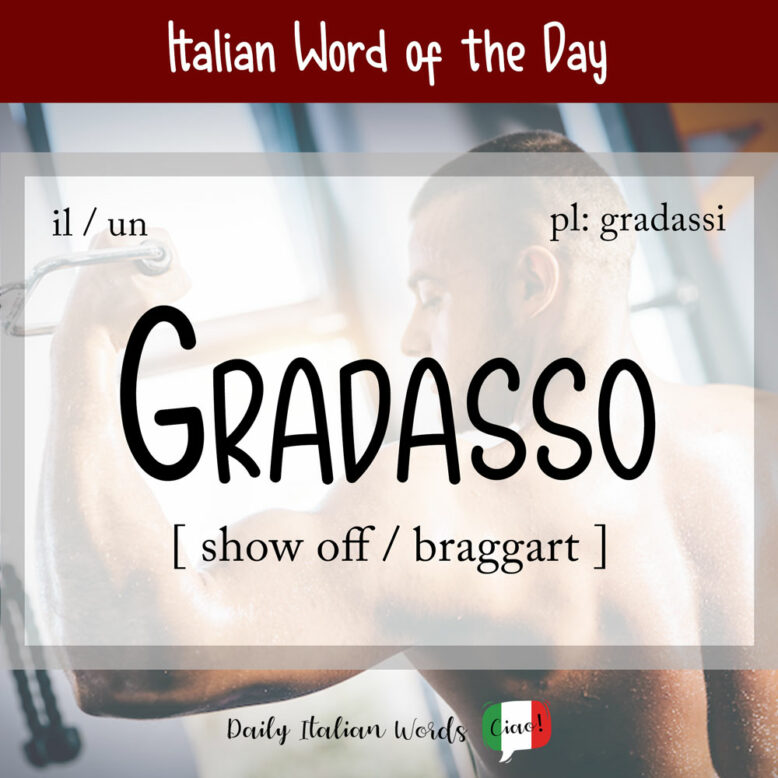Orlando Furioso (The Frenzy of Orlando) and its prequel Orlando Inamorato (Orlando in Love) are two of the longest epic poems ever written in the Italian language. And they are packed with hundreds of characters, some of whom are so well-known and influential that their names have made their way into the Italian dictionary!
One such character is Gradasso, who, in the first poem (written by Matteo Maria Boiardo in the late 1400s) is the king of Sericana and the Arab people of the Nabataeans. Described as impulsive, doggedly determined, and prone to exaggerating his courage and strength, his name has became synonymous with the words millantatore and smargiasso (both of which also mean “braggart” in Italian). Source: Fanpage.it

Although gradasso is technically a name, it is listed as a masculine noun in the dictionary, and as such, takes the following definite and indefinite articles:
- il gradasso = the braggart
- i gradassi = the braggarts
- un gradasso = a braggart
- dei gradassi = (some) braggarts

However, when referring to a female braggart, it requires a feminine endings -a and -e.
- la gradassa = the braggart
- le gradasse = the braggarts
- una gradassa = a braggart
- delle gradasse = (some) braggarts
The expression in which this word is most commonly used is fare il gradasso (lit. to do the Gradasso, or to behave like Gradasso). The closest English translation would be “to show off” or “to brag“.
Volevi fare il gradasso parlando in inglese, e invece hai fatto una brutta figura.
You wanted to show off by speaking in English, but instead you made a bad impression.
Heather Broster is a graduate with honours in linguistics from the University of Western Ontario. She is an aspiring polyglot, proficient in English and Italian, as well as Japanese, Welsh, and French to varying degrees of fluency. Originally from Toronto, Heather has resided in various countries, notably Italy for a period of six years. Her primary focus lies in the fields of language acquisition, education, and bilingual instruction.


